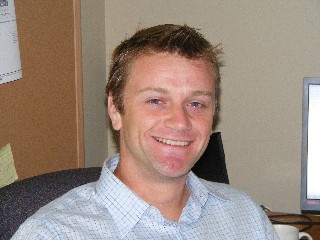David Owens Joins Department of Economics

David Owens
Details
When new assistant professor of economics David Owens was an undergraduate at the University of Delaware, he planned to major in engineering. However, his first economics course changed everything.“At the introductory level, engineering was very abstract. Economics seemed more concrete,” he says.“I liked to pick up the business section of the newspaper and understand what they were talking about. The relationship between the classroom and the real world seemed more tangible with economics.”
Owens, who holds a Ph.D. from the University of California at Berkeley, continues to pursue the research begun in his dissertation.“I'm a choice theorist,” he says.“I'm looking at individual decision-making units—people, firms, households—and analyzing their choices.” More specifically, he's exploring observational learning, the practice of learning about available alternatives by observing the decisions of others.
“If you're hungry in a strange town,” he explains,“the most crowded restaurant might be the best one. Presumably, all those people went there for a reason.”
As his research requires careful control of what people know and what motivates them, Owens conducts the majority of his research in an experimental economics laboratory.“In lab experiments, we're able to control the information, and we pay subjects based on their choices,” he says.“That way, we can claim that their choices represent their preferences. You have no control over what people observe in a restaurant.”
While Owens prepares his doctoral thesis for publication, he also has his eye on a potential collaboration with a friend at the University of California Santa Barbara that would study outcomes that depend jointly on acts of will and random chance, and reactions thereto.“Suppose a friend has promised to buy you a lottery ticket with your favorite number, and neglects to do so. Now suppose that your favorite number wins. Through a vessel that is clearly random, her transgression has become infinitely more egregious.”
Owens is teaching behavioral economics and introductory microeconomics at Haverford, and is so far enjoying every minute.“I have a lot of freedom to teach what I like the way I like, and I get a lot of help, support, and feedback [from colleagues] on updating my teaching methods.” He says that Haverford's requirement of a thesis for every graduating senior was a big draw for him, and looks forward to incorporating his research into the curriculum and involving students in his projects.
-Brenna McBride



